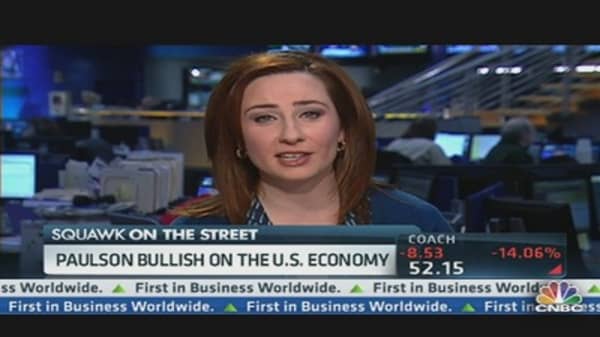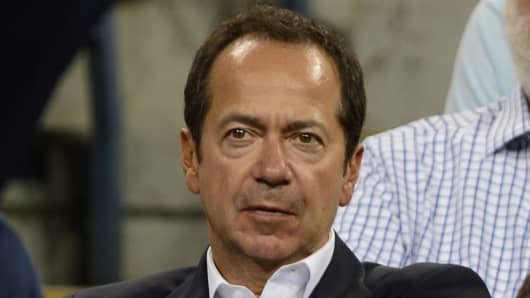More than four years after the financial crisis that made him billions, hedge-fund manager John Paulson is bullish on the U.S. economy and housing in particular — a significant reversal for the man whose mortgage-market short was the subject of a book entitled "The Greatest Trade Ever."
Speaking to an audience at Manhattan's 92nd Street Y Tuesday night, Paulson said the housing market had shown a "strong recovery" with prices up and the number of homes for sale at a decade low. Those factors will likely put pressure on builders to create new product, he noted, creating some of the "most positive change in housing since the Lehman crisis."
Paulson said that for an individual investor, his best piece of advice was to buy a home. "This is probably the best time in our lifetime to consider buying a house," he said. The combination of low mortgage rates and tax deductions on housing means that "affordability…has never been higher." He added that he was bullish on the stock market and on the U.S. energy sector, whose growth could buoy related industries like chemicals and petrochemicals. (Read More: Inside America's Economic Crisis)
He was less bullish on credit, where he added that the ultimate returns are likely to be far weaker than in stocks. Still, Paulson said that the "rate of expansion" in American's use of credit, including cards, auto loans, and mortgages, would probably increase this year.
The founder and portfolio manager of Paulson & Co., a hedge-fund company with roughly $20 billion in assets under management, Paulson has been optimistic about the U.S. economy in recent years, even opening a fund dedicated to investments that would benefit from a financial recovery several years ago. His prescient bet in the mid-2000s that subprime, or risky, home loans would crater the housing market generated returns of nearly 600 percent for the year 2007, and helped his total assets climb to an eventual peak of $38 billion. (Read More: John Paulson's Hedge Funds Weather Another Tough Month)
But the past two years have been far less successful. A series of losing bets, including a European credit strategy and major losses in the gold-mining sector have cut Paulson & Co.'s assets in half in recent years. Last year, his umbrella fund, Paulson Advantage, was down 14 percent, paving the way for some large investors to pull their capital. (Around the same time, the 92nd Street Y, itself an investor in Paulson's company, redeemed its capital as part of a broader change in its approach to money-management.) His gold fund was down even further, losing nearly 24 percent. (Read More: Despite Sweet Deal, 92nd Street Y Redeems Paulson Money)
Paulson, who is a director at the Y, was joined last night by former Treasury Secretary Robert Rubin, who described himself as far less optimistic about the U.S. economy. Rubin cited the risk of sequestration — automatic government spending cuts that will kick in if budget compromise isn't reached in Congress — and ballooning debt as reasons for worry. (Read More:GOP Moves to Suspend Debt Ceiling Until May)
—By CNBC's Kate Kelly; Follow her on Twitter:
@KateKellyCNBC





